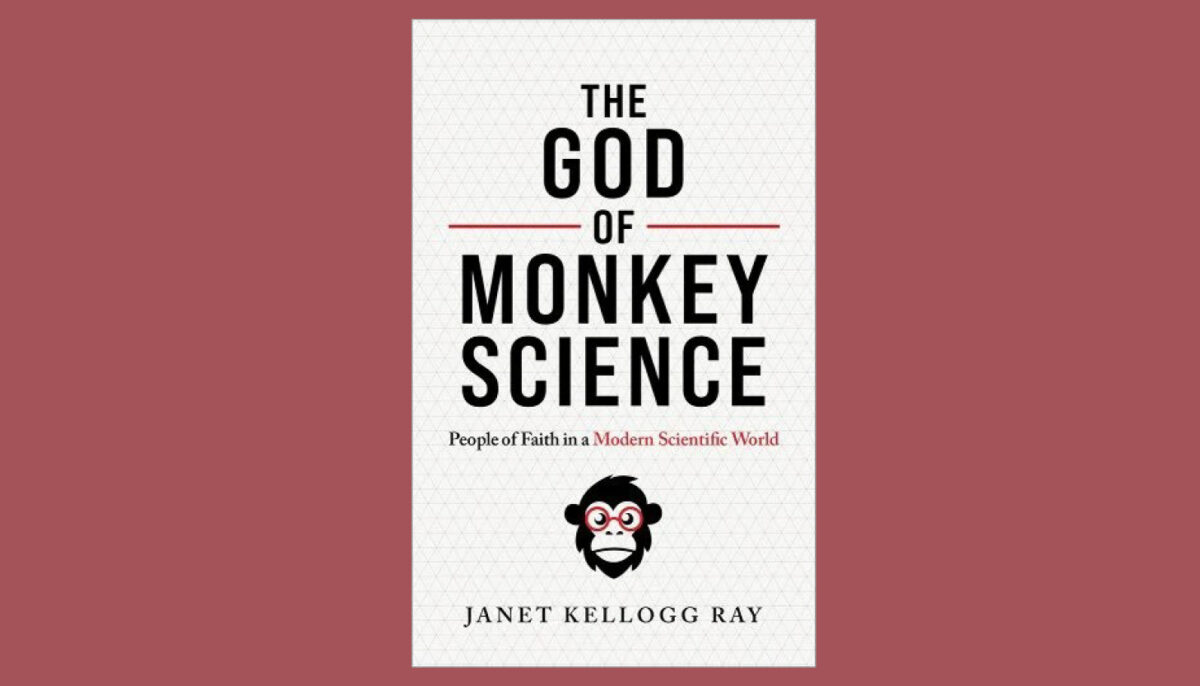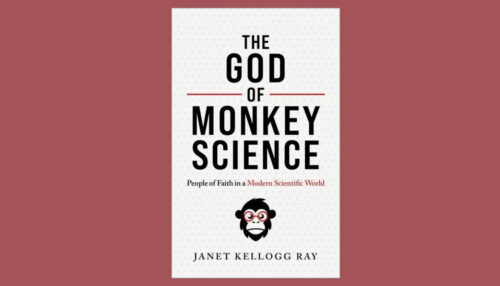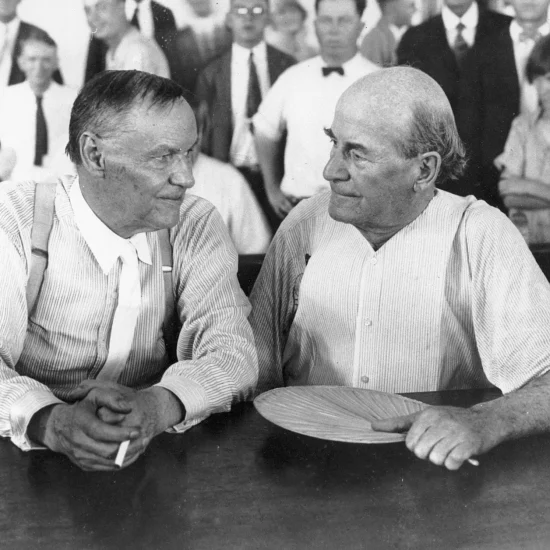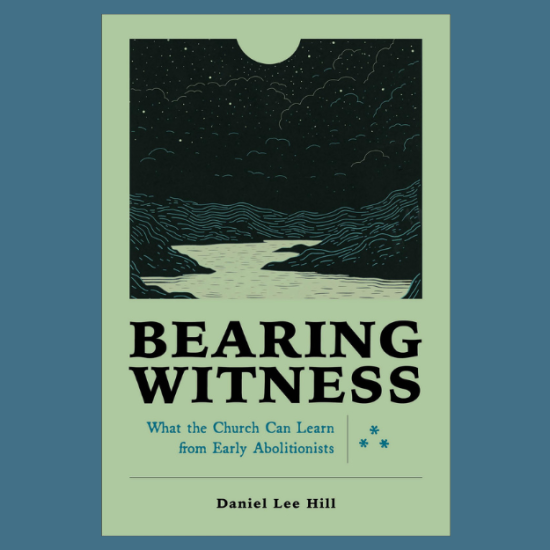

THE GOD OF MONKEY SCIENCE: People of Faith in a Modern Scientific World. By Janet Kellogg Ray. Grand Rapids, MI: Wm. B. Eerdmans Publishing Company, 2023. X + 238 pages.
Back during my teen years, I encountered Creation Science. It was presented to us in my Christian circles as a kind of science that fit with a literal reading of the Bible, especially Genesis. I read books by Duane Gish and Henry Morris. Here were real scientists who believed in the Bible and demonstrated how this kind of science made the most sense of both science and the Bible. If the books weren’t enough, during my college years I attended a debate between a scientist from the local public university and Duane Gish. Gish seemed to have all the right answers, running circles around this university professor. I later learned that most science professors aren’t proficient debaters while Gish and others in his group were well trained in the art of rhetoric.
I would eventually let go of my devotion to “creation science,” but I remember how attractive it was. Evolution seemed to contradict my theological presuppositions. Eventually, I discovered other ways (better ways) of reading the Bible. Now, I should have known better, even during my college days, since none of my professors were young earth creationists. I just didn’t connect the dots early on. My first step away from this view involved reading a book by a Calvin College geology professor named Davis A. Young, who demonstrated how geology revealed an old earth, and that this reality need not undermine my belief that God is the creator.

Robert D. Cornwall
I share this background because Janet Kellog Ray’s book The God of Monkey Science tells a similar story and takes on the “creation science” folk. In this book, Ray shows how the denigration of evolution by young earthers and purveyors of intelligent design has led, especially in the hands of people like Ken Ham of Answers in Genesis, to a distrust of science. Here’s the thing it’s not just evolution that is at stake. It’s everything related to science from climate science to medical science (including dealing with diseases such as COVID-19), stem cell research, and more. For her part, Ray identifies as an evangelical Christian, whose background is Churches of Christ (non-instrumental). She is also a biologist and a science educator who teaches at a state university in Texas. With these two identities in play, Ray brings together an evangelical faith with the recognition that evolution is the foundation for much of modern science, including modern medicine. So it has some rather practical implications.
Being a science educator, Ray’s goal here is to help people of faith recognize that they needn’t reject modern science to believe in God. In fact, many good evangelicals are also scientists. They include Francis Collins, the former head of the National Institute of Health, which brought you a COVID-19 vaccine. Ray uses this book to address and overcome the science denialism that is sweeping through evangelicalism, as well as taking note of the attendant implications of this denialism. Thus, science denialism is not just the rejection of scientific facts, it also involves the misuse and misrepresentation of the facts (as we’ve seen with both climate change debates and the misrepresentation of the COVID-19 virus and vaccines). This might be the insidious part of this effort among evangelicals. While she starts with the “Scopes Monkey Trial,” her focus is on the present situation.
After setting the stage for the conversation about the implications of science denialism in Chapter 1, where she rehearses the movement from Scopes to the present, she introduces us in Chapter 2 to the relationship that has existed between science and evangelicalism since the early twentieth century. To do this she must first define evangelicalism, both doctrinally and socially. She also defines for us “creationism,” which is not the same thing as a belief in God as the creator. She focuses on Young Earth Creationists, those who embrace a literal seven-day creation event that took place no more than seven to ten thousand years ago (the date is thanks to Bishop Ussher who was active in the early 17th century). A subset of this view is known as Intelligent Design. Although not all Intelligent Design people are young earthers they have similar goals.
After describing the players in Chapter 2, Ray asks an important question in Chapter 3: “Who Do You Trust?” Here the question revolves around whether we trust expertise, especially scientific expertise. It’s becoming clear that not everyone trusts experts. Instead, many have chosen to do their own research, usually by googling the topic at hand. They do this whether they know how to sift through sources or not. One of the ways creationists have attacked scientific expertise is to “teach the controversy.” The playbook involves asking that teachers, especially high school teachers, teach “both sides,” as if the “two sides” are equally valid or even plausible. The goal of “teaching the controversy” is not to inform but to confuse. In many cases, science teachers just avoid the debate by not teaching evolution. It’s not worth the headaches, especially with parental complaints (parents always know best) and students pushing the envelope. The result is we become less informed about science.
As we turn to Chapter 4, we find Janet Ray raising the question of “Scientific Literacy in a Time of COVID.” She begins with the anti-vaccine efforts of Andrew Wakefield that began long before COVID-19. Wakefield was known for suggesting that vaccines led to autism. He even got a paper published in a leading scientific journal. While he was ultimately revealed to be a fraud and lost his medical license, the cat was out of the bag. Anti-vax activism and belief have been on the rise ever since. Of course, we saw this up close with the COVID-19 vaccines, which quickly became a political hot potato (see Ron DeSantis of Florida as a prime example). The most resistant persons to the COVID-19 vaccines have been White evangelicals. That is, people who have been influenced by creation science. Of course, leading the charge against vaccines have been people like Ken Ham. So in this chapter, Ray gives us a brief reminder of how the scientific method works, something people like Ham fail to either understand or communicate. That includes the importance of double-blind testing (something Wakefield did not do when it came to his anti-vax efforts, which continue to this day).
Chapter 5 speaks of the claim to have “Faith over Fear,” in which she addresses the pseudo-science of certainty. That includes the certainty that faith would be able to protect against COVID-19. The faith that Ray invokes as an alternative is one that is God-honoring and especially neighbor-loving. Interestingly, with COVID-19, White evangelicals who rejected vaccines, social distancing, and masking, were immune to suggestions that using these forms of protection was neighbor-loving. Instead, these evangelicals were concerned only for themselves and their right to do as they pleased something that seems at odds with following Jesus. From there we move to Chapter 6, “Life in the Bubble,” and the emergence of Christian anti-intellectualism, which has long been a problem (see Mark Noll’s The Scandal of the Evangelical Mind), that contributed to the problem, with possibly catastrophic implications.
Then in chapter 7 Ray connects the anti-science efforts with the ongoing culture wars. Thus, the anti-science efforts are just part of a larger effort that uses arguments against evolution not only to deal with scientific advances but as a cause of cultural decay including violence, atheism, and more. With the culture wars driving the conversation about science, we learn in Chapter 8 how Christians have learned to embrace our “Constitutional Rights.” This includes such things as demanding “equal time” when it comes to evolution and more. So if you teach evolution, it is our “constitutional right” as citizens to have creationism taught as well. After all, this is my right. Then there’s COVID-19. Christians declare that it is our right to have church in person even if it’s a superspreader. Of course, it’s my right to do so without masks. We then add in the rejection of vaccine mandates, even if we work in health care. All of this is wrapped up in the evangelical embrace of politics (especially Trumpism).
That conversation is continued in Chapter 9, where Ray reveals how Anthony Fauci, the face of the fight against COVID-19, was smeared by right-wing culture warriors who went as far as suggesting that Fauci hates puppies. While Fauci focused on medicine and science, he was attacked politically and his reputation has been damaged, often by Christian operatives who made use of lies and innuendo (hardly a Christian effort). After dealing with how COVID-19 science was undertaken, in Chapter 10, we move to attempts to show that climate science is also a hoax. Again, evangelicals have been at the ground level of climate denialism. Chapter 11, titled “Hello Dolly” after the famed cloned sheep, is interesting because as you might expect, it deals with cloning and genetic engineering. This chapter includes an important conversation about stem cells and their value to medical science. All of this, of course, has roots in the “debate” over evolution. Here is where Ray wants Christians to recognize that people of faith have something to offer to science and that is ethics (if we’re willing to be ethical, something that we should not take for granted. Remember that the largest group of Trump-backers are White evangelicals). Science can do a lot of things, not all of which are wise. People of faith can speak to this, but we can’t be anti-science and do so.
The final chapter in The God of Monkey Science invites us to take our place in the scientific conversation by respecting its expertise and offering our own ethical contributions to that conversation. But, to do so we must abandon science denialism, an effort that is damaging so much of our society. Not only that but it’s important from a Christian perspective that is concerned about the growing rejection of Christianity among teens and young adults. One of the biggest contributors to this rejection is the dismissal of science by many Christians. She writes, “The culture warriors tell us that evolution is causing atheism. Quite the opposite—the denial of evolution and other aspects of science is shipwrecking faith” (p. 176). If for no other reason than this, evangelicals might want to rethink their science denialism lest they lose the next generation.
Janet Kellogg Ray does a great service with her book The God of Monkey Science by revealing the dangers of science denialism to the future of our planet and to the Christian faith itself. The anti-science and anti-intellectual dimensions embraced by portions of the Christian community (not the entire community) have caused great harm. It’s time to resist and offer alternative voices — voices like that of Janet Kellogg Ray, an evangelical scientist who is concerned about our planet, the inhabitants of this planet, and the Christian message. Hopefully, her book will get a wide readership, especially among evangelicals, but really the larger Christian world, so we can turn the tide. It’s a God and neighbor thing to do.
The good news is that the book is very accessible. It deals with science and theology, but in a way that invites the reader into the conversation, whether they are fully trained in science (I’m not) or theology (that’s more my area). So take it up and read it closely.
This review originally appeared on BobCornwall.com.
Robert D. Cornwall is an ordained minister in the Christian Church (Disciples of Christ). Now retired from his ministry at Central Woodward Christian Church (Disciples of Christ) of Troy, Michigan, he serves as Minister-at-Large in Troy. He holds a Ph.D. in Historical Theology from Fuller Theological Seminary and is the author of numerous books including his latest “Second Thoughts about the Second Coming: Understanding the End Times, Our Future, and Christian Hope” coauthored with Ronald J. Allen. His blog Ponderings on a Faith Journey can be found at www.bobcornwall.com.





